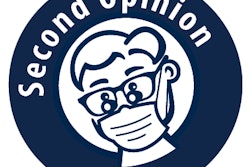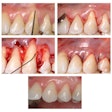Measures that would have allowed midlevel providers (MLP) to do irreversible procedures were defeated this week by the Washington state legislators, but a bill that would allow California to study the benefits of alternative dental care providers is still being considered by state lawmakers.
The Washington bills, HB 2226 and SB 6126, did not receive enough votes to be heard by the state Senate. The measures would have created a dental hygiene practitioner and a dental practitioner.
The dental hygiene practitioner would require licensed hygienists to get a Bachelor of Science degree, followed by specialized training and a 250-hour internship with a dentist. The dental practitioner also requires specialized training after completing high school and a 400-hour internship with a dentist. Both types of providers could have their internships extended if the the supervising dentist felt it was needed, and both would be allowed to provide various levels of dental care "pursuant to a written practice plan with a dentist."
The Washington State Dental Association (WSDA) and the Washington Academy of General Dentistry opposed the bills, saying MLPs would lack sufficient supervision and would have insufficient training to diagnose cases.
A similar measure was defeated last year, but supporters, including the Washington State Dental Hygienists' Association (WSDHA), pledged to reintroduce the bills next year.
"The coalition and the WSDHA look forward to the collaborative meeting proposed by the WSDA and Sen. David Frockt (D-Seattle)," Lynn Stedman, RDH, president of the WSDHA, told DrBicuspid.com. "A collaborative effort to create a successful solution to erase the disparity in dental care access is the ultimate goal."
Meanwhile, the California bill, SB 694, introduced by state Sen. Alex Padilla (D-San Fernando Valley), has been passed by the state Senate 34-2 and is pending assignment to an Assembly committee. The measure is expected to be heard before the end of the legislative session on August 31, 2012.
The bill would establish a state dental director who could "design and implement a scientifically rigorous study to assess the safety, quality, cost-effectiveness, and patient satisfaction of irreversible dental procedures performed by traditional and nontraditional providers for the purpose of informing future decisions about scope of practice changes in the dental workforce that include irreversible or surgical procedures."
The California Dental Association supports the proposed legislation, but two other state dental groups -- the California Academy of General Dentistry and the California Association of Oral and Maxillofacial Surgeons -- oppose the concept of MLPs, saying they lack the necessary training to do irreversible procedures.



















